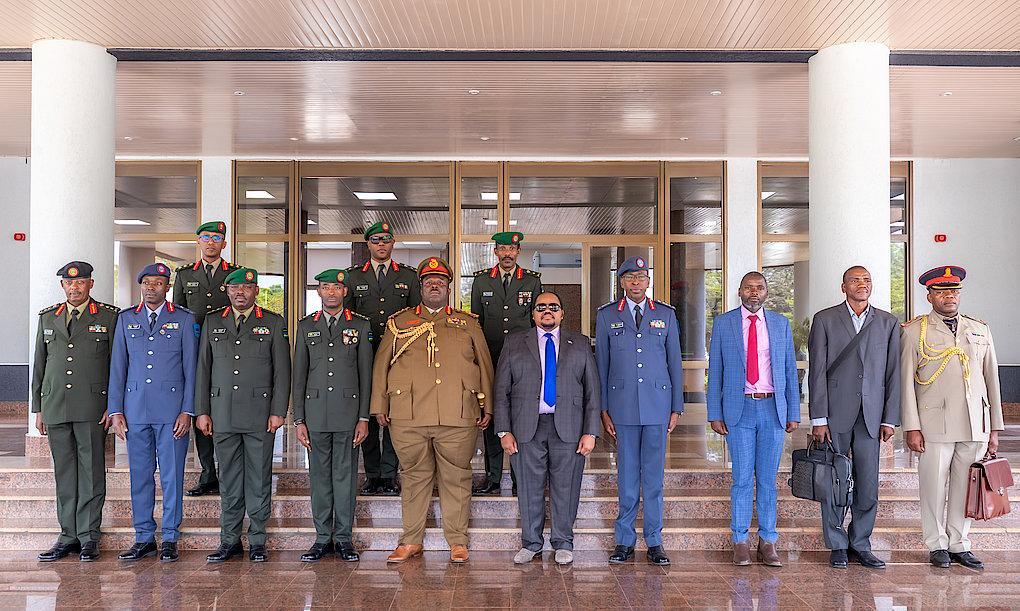Africa-Press – Eswatini. You would not be a soldier per se, but would be employed by the army as a civilian.
This is if the Ministry of National Defence and Security could commercialise the Umbutfo Eswatini Defence Force’s (UEDF) industrial projects that have the potential to create civilian jobs within the army. The conclusion that there might be jobs within the army stems from the 2023–24 annual performance report by the ministry.
The ministry’s offices are located at Lozitha. Its Principal Secretary (PS) is Prince Sicalo. It is one ministry that does not have a minister. Nevertheless, it is protected by the Ministry of Foreign Affairs and International Cooperation. The ministry was allocated the national budget of E1.26 billion and E40 million for recurrent and capital projects, respectively, last year.
The potential job creation that could benefit unemployed emaSwati within the UEDF includes a factory, six farms, and 10 clinics, making the army a potential employer. The apparel sewing factory is located at KaGcina barracks.
The annual report stated that the factory belongs to the UEDF and falls under the textile department.
The annual report also states that this project was constructed through MicroProjects with the purpose of having an in-house production of all various types of army uniforms, which is intended to minimise the costs of purchasing these outside the country. It started with the purchase of 55 different apparel industrial sewing machines, camouflage fabric, and trims. But this is not without challenges.
“Currently, the factory is able to sew all kinds of uniforms worn by army personnel, such as camouflage, khakhi, jerseys and badges,” the Ministry of Defence and Security’s annual report stated, recommending the hiring of seamstresses on a contract basis.
Skilled
The report states that a shortage of manpower in the form of skilled machine operators is a problem ‘causing a wide range of negative impacts in the factory, for instance, delays in delivery dates because of low output.’ “The labour shortage is impeding the economic growth of the factory by limiting the capacity of expansion to manufacture apparel and uniforms for other government security forces and ministries,” the report reads.
The UEDF has a supply chain system in place from the dispatch at Garrison in Matsapha to distribution centres, where the uniforms are needed by various barracks. On agricultural projects, the Ministry of Defence has six farms. These are a 70-hectare farm at Mdzimba, Mbanana, covering 60 hectares; Mbuluzi (31 hectares); Malkerns (210 hectares); Gcina (19 hectares); and Bethany (414 hectares). The ministry said in the year under review, it was only able to plant two of the six farms due to limited budget allocation.
Gcina and Bethany farms were used to produce maize and beans, respectively. “With the available arable land present under the ministry, it is impossible for the department to utilise all the land due to the limited budget under farming,” the Ministry of Defence stated in its annual report.
With the lack of resources, including human resources, the ministry struggles to diversify ‘into other agricultural practices since they are costly,’ including livestock production and large-scale vegetables. The only place where the army seemed to have met its human resource needs in projects was in Military Health Services, thanks to the partnership with the URC. The URC continued to support UEDF by providing qualified doctors, nurses, counsellors and expert clients to address the facility’s needs.
Treated
There are 10 military health centres and they, in unison, attended to 32 629 patients who were treated and discharged in the Outpatient Department (ODP). Nine diseases were diagnosed, including diarrhoea, skin disorders and mumps. “Also, the National TB programme continued to assist in the provision of nurses under the TB department. “Thus, it helps to alleviate the shortage of human resources in the military health services,” the report states.
For More News And Analysis About Eswatini Follow Africa-Press







